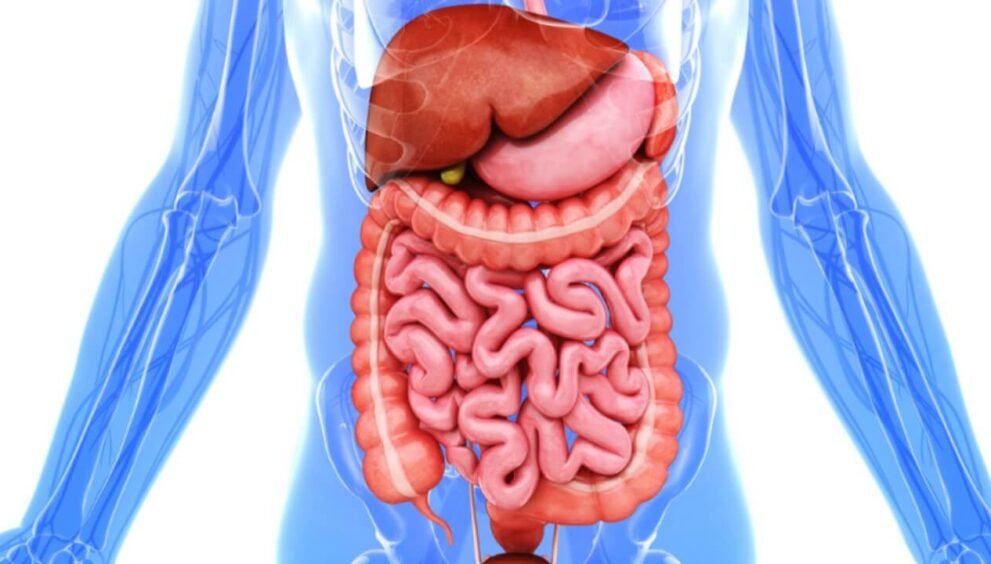The Path to Nourishment: Exploring the Role of Food Pathways in Health and Wellness

Food is the foundation of our daily lives, providing us with the energy and nutrients required to function effectively. But have you ever considered the journey that food takes once it enters our body? From the moment we take that first bite, our food travels through a complex system of pathways, processing, and digestion, ensuring that we derive maximum benefit. This process, known as the “food path,” plays a crucial role in maintaining our health and wellness. In this blog, we will explore the science behind the food path and how it affects our bodies, especially in the context of the UAE, where food culture and lifestyle are diverse and rapidly evolving.
The Journey Begins: Understanding the Food Path
The food path refers to the intricate journey that food undergoes from ingestion to digestion, absorption, and ultimately, the nourishment of our body. Once food enters the mouth, it begins its journey down the digestive tract, where enzymes, acids, and bile work to break it down into smaller components that the body can absorb and use.
In the UAE, a country with a mix of traditional and international cuisines, the types of food consumed can vary significantly, impacting the digestion process. Rich in spices, oils, and various food groups, traditional Emirati dishes such as machboos and hummus are flavorful and packed with nutrients, but they also place demands on the digestive system.
The Role of Enzymes and Saliva
The journey of food through the body begins in the mouth, where the mechanical action of chewing breaks it into smaller pieces. Saliva, produced by the salivary glands, plays a crucial role in moistening the food, making it easier to swallow. Saliva contains enzymes such as amylase, which begins breaking down carbohydrates even before the food reaches the stomach.
This early digestion process is essential in ensuring that food moves smoothly through the digestive tract. The path it follows allows nutrients to be extracted efficiently, contributing to overall health. For individuals in the UAE, where food choices often include both light and rich meals, maintaining proper digestive function can be challenging, especially with the heavy consumption of fried and processed foods.
The Stomach: Breaking Down the Food
After food reaches the stomach, it is met with powerful gastric juices, including hydrochloric acid and pepsin. These digestive fluids further break down proteins and prepare food for absorption in the small intestine. The stomach’s ability to process food depends on the quality of the food consumed. Heavy, greasy dishes, often found in fast food or fried items, can slow down digestion and cause discomfort, leading to conditions like acid reflux or indigestion.
In the UAE, with its bustling food culture, it’s common to indulge in food that’s rich in fats and oils, especially with the rise in popularity of fast food chains. It’s important to recognize how such foods can affect the food path, especially when consumed in excess. As the food breaks down in the stomach, the nutrients are prepared for absorption in the next part of the digestive journey—the small intestine.
The Small Intestine: Nutrient Absorption
The small intestine is a key player in the food path. As partially digested food moves from the stomach into the small intestine, the body begins absorbing essential nutrients such as vitamins, minerals, proteins, and carbohydrates. This process is facilitated by digestive enzymes and bile, which are secreted into the intestine.
The UAE’s modern lifestyle, which often includes an imbalance between fast food and healthy meals, can affect the efficiency of nutrient absorption. Inadequate intake of fiber-rich foods, which are crucial for digestion, can cause disruptions in the small intestine, leading to conditions like bloating, constipation, or malabsorption.
Dr. Ahmed Al-Bitar, a gastroenterologist based in Dubai, explains: “A balanced diet, rich in fiber and essential nutrients, helps maintain a healthy food path. In the UAE, the challenge lies in the accessibility and affordability of nutrient-dense foods, which often take a backseat to more convenient, processed options.”
The Large Intestine: Final Stages of Digestion
Once the small intestine has absorbed the majority of the nutrients, any remaining waste products are passed into the large intestine. Here, water and electrolytes are absorbed, and the remaining material is compacted into stool. The health of the large intestine is essential for overall well-being, and any imbalances, such as a lack of fiber or excessive consumption of processed foods, can lead to digestive disorders like irritable bowel syndrome (IBS) or chronic constipation.
In the UAE, where the climate can be extreme and the lifestyle often involves a high intake of sugary drinks and fast food, maintaining a healthy large intestine can be challenging. However, integrating fiber-rich foods like fruits, vegetables, and whole grains can aid the digestion process and improve bowel health.
The Role of Hydration
Hydration plays a significant role in maintaining the efficiency of the entire food path. Water helps in the breakdown of food and supports the absorption of nutrients. Additionally, it ensures smooth passage through the intestines, preventing constipation and other digestive issues. In the UAE, where temperatures soar during summer months, staying hydrated is crucial, particularly when consuming spicy foods or dishes that are rich in sodium.
The Impact of Lifestyle Choices on the Food Path
The food path is not only influenced by the types of food consumed but also by lifestyle factors. In the UAE, where both work and social commitments can lead to stress, it’s important to consider how these factors impact digestion. Stress can disrupt the digestive system by altering the function of the stomach and intestines, leading to issues such as bloating, indigestion, and even ulcers.
Maintaining a balanced lifestyle, which includes regular physical activity, adequate sleep, and stress management, can significantly improve the efficiency of the food path. For example, exercising after meals can help stimulate digestion and promote the smooth movement of food through the gastrointestinal system.
Cultural Influence on Food Choices
Food choices in the UAE are deeply influenced by cultural traditions. Traditional Emirati cuisine emphasizes rice, meat, vegetables, and spices, which are not only delicious but also offer various health benefits when consumed in moderation. On the other hand, the increasing popularity of international fast food chains has introduced processed, high-fat, and high-sugar foods into the diet, which can affect the digestive process negatively.
It’s important for individuals in the UAE to be mindful of how these dietary habits impact the food path and strive to maintain a balance between traditional and modern eating habits.
The Importance of a Healthy Food Path for Overall Well-Being
The health of the food path is integral to overall well-being. A well-functioning digestive system ensures that the body receives the necessary nutrients to fuel daily activities and maintain energy levels. Moreover, it plays a critical role in supporting the immune system, mental health, and metabolism.
By prioritizing a balanced diet that includes whole, minimally processed foods, individuals in the UAE can significantly improve the health of their food path. Incorporating more fruits, vegetables, lean proteins, and whole grains into the diet can reduce the risk of digestive issues and promote better absorption of essential nutrients.
Conclusion: Nurturing the Food Path for a Healthier Future
The food path is a crucial part of our overall health and wellness. Understanding the journey that food takes from ingestion to absorption can help us make better dietary choices and foster a healthier lifestyle. In the UAE, where food culture is diverse and evolving, it’s important to maintain a balance between traditional and modern eating habits to support the efficient functioning of the digestive system.
By making mindful choices and embracing a holistic approach to health, individuals in the UAE can ensure that their food path remains healthy, ultimately leading to improved digestion, enhanced energy levels, and overall well-being. Prioritizing good nutrition, hydration, and a balanced lifestyle can pave the way for a healthier future for both the body and mind.








































































































































































































































































































































































































































































































